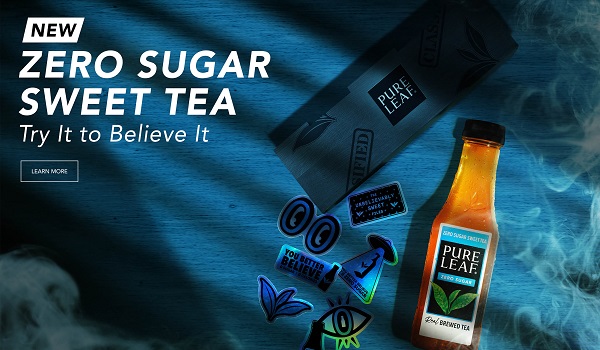PepsiCo and Unilever have launched Pure Leaf Zero Sugar Sweet Tea, marking their foray into the zero-sugar sweet tea segment. The joint venture, Pepsi Lipton Partnership, aims to cater to the increasing demand for sugar-free beverages with this latest offering.
The newly launched Pure Leaf tea, sweetened with a blend that includes sucralose and acesulfame potassium, is set to hit store shelves this month. Julie Raheja-Perera, General Manager of North America for the Pepsi Lipton Partnership, highlighted that 91% of liquid refreshment beverage consumers have expressed interest in zero-sugar products.
Raheja-Perera emphasized that Pure Leaf’s entry into the zero-sugar market will not only satisfy existing consumer needs but also attract new customers seeking low-calorie alternatives. She identified the absence of a sugar-free option as a significant barrier hindering consumers from purchasing tea brands, a gap that Pure Leaf aims to fill with its latest offering.
The decision to introduce Pure Leaf Zero Sugar Sweet Tea aligns with broader trends in the beverage industry as consumers increasingly prioritize health and wellness. The global market for zero-sugar beverages is projected to exceed $13 billion by 2033, reflecting a compound annual growth rate of 14.7%, according to estimates by Future Market Insights.
While Pure Leaf’s move into the zero-sugar sweet tea category marks a significant expansion for the brand, it follows a strategic approach already undertaken by other beverage giants. Coca-Cola’s Gold Peak brand, along with Zevia and Milo’s, among others, have also introduced zero-sugar options to meet consumer demand for healthier alternatives.
With Pure Leaf ranked as the second-best-selling brand in the $4.6 billion canned and bottled tea category, the introduction of Pure Leaf Zero Sugar Sweet Tea is poised to further strengthen its market position. Raheja-Perera hinted at high consumer interest in the new product during testing phases, signalling promising prospects for the brand’s incremental growth in the competitive beverage market.


